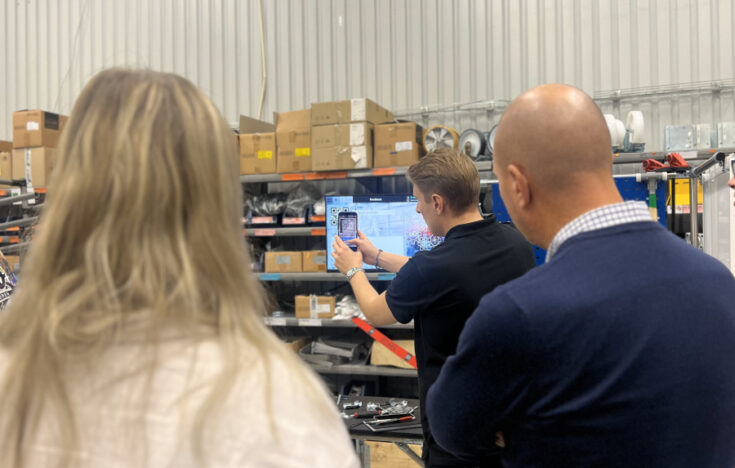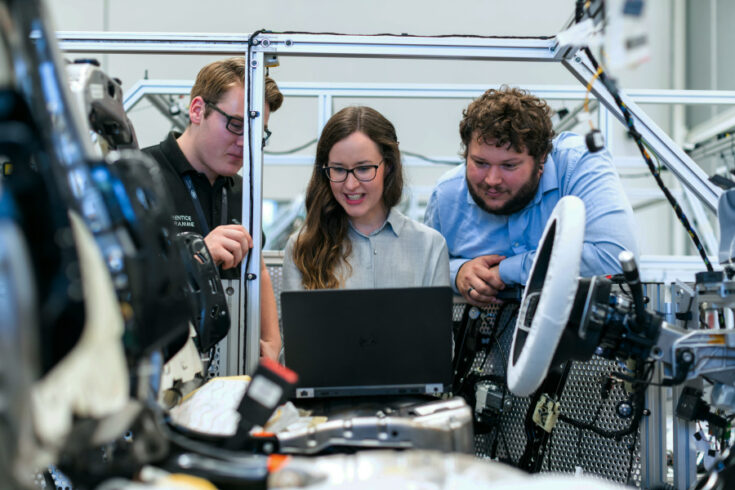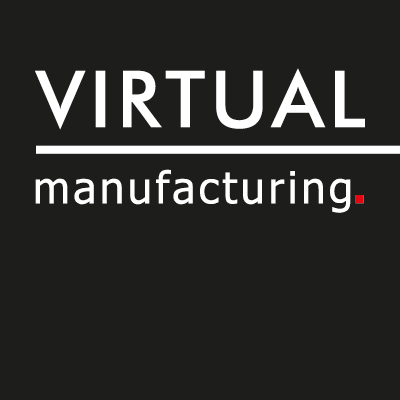– Streamlines processes and industry 4.0 adoption; enables green manufacturing, efficiency, and production improvements
Virtual Manufacturing (VM) in Thailand is now an established Swedish-Thai lean consultant facilitating and spearheading Smart Manufacturing. Multinationals should pay attention that we nowadays also serve clients overseas, enabling full service to manufacturers with multiple sites and focused on scalability!
“Our expansion to serve multinationals overseas, particularly from the Nordic region, is a strategic move. It reflects our commitment to bring VM’s unique blend of innovation, efficiency, and sustainability to a global stage, recognising the intricate dynamics of global operations,” says MD Mr. Pontus Rosengren.

Our qualification criteria are usually manual or discreet assembly manufacturers (or those with hybrid production having lots of changeover needs) and focused on the high mix and low volume. Often, clients also look for replacements for paperwork or a legacy MES system.
Our clients typically face complex challenges – managing diverse teams, navigating local regulations, or ensuring consistency across borders. VM’s in-depth understanding of local cultures enables us to tailor solutions that resonate while meeting global standards of excellence. The blend uniquely positions us to turn these challenges into opportunities, driving efficiency and innovation at every level. Our team in Thailand includes individuals from various nationalities, each bringing different languages to the table. This diversity makes it smooth for us to connect and work with multicultural businesses.
Among our services, we have a ‘visual component‘ – an advanced simulation platform pivotal in designing and optimising production processes even before physically implementing those. This tool will save time, significantly reduce risk, and foster innovation. You’ll be able to foresee changes and what they look like. And you can even entirely and realistically simulate it.
Today, many automation investments and initiatives need help carrying out the digital delivery first or testing and stress testing things in the virtual world first. So that’s our recommended approach before you make investments and changes in your factory. And the same applies if you wish to test a new approach in manufacturing. You also need to foresee the inevitable problems that will eventually occur in any factory!

Tulip in the toolbox
Furthermore, we’ve expanded our expertise to include frontline operation platform development, reflecting our commitment to streamline production processes and empower operational decision-making with advanced digital tools. It’s where strategies meet reality.
Tulip is such a platform complementing our services, and that helps manufacturers boost productivity, cut defects, and gain improvement insights. “These are testaments to the transformative power of intelligent, integrated manufacturing solutions. It’s about achieving more with less – less waste, less downtime, and less uncertainty,” says Pontus.
Tulip has built a low/no-code platform that we can fit in with any current MES and gap fill where you’re not strong enough – and solve individual station problems. So, when observing manufacturing with lean eyes, we often record on video and gather data. Then, by analysing, we can solve any issue, for example, by digitalising it. Instead of spending months or years building software or an application, we can do it within days or weeks, so it’s swift to solve a problem or come up with something you can test. We can also build bespoke digital solutions for any specific workstation that fits in with the rest of the system they manufacture and can solve any ergonomic issue.
With Tulip, we can, for example, also connect to a testing station to verify the product’s quality and document this information. We can combine everything into one platform.
“But the main point is that you need to be able to understand and translate data so that you can earn money from it later on because data mining will become one of the main key aspects of earning money,” adds Pontus.
By providing frontline teams with real-time data, intuitive tools, and decision-making autonomy, we’re not just optimising a process but energising a workforce.
“In Industry 4.0, many different initiatives come together and still need to be able to connect, talk to, and understand each other. Eventually, it comes down to what value one can recreate from using the technologies – and not only that, because with Industry 4.0, many smaller initiatives will lead you to a great benefit, compared to getting a huge advantage from installing a robot, for instance. We must ensure democratisation amongst those who can solve problems – to let and help people on the shop floor solve their problems with digital tools. They can do that through Tulip, for example, and are also able to connect and understand all this data gathered from devices.”
“Our collaboration with Tulip underscores our belief that digital solutions should complement, not complicate, your existing operations. This approach signifies a shift from a one-size-fits-all solution to a more nuanced, customisable strategy, ensuring that technology serves the business, not vice versa,” he concludes.

Into the era of Industry 4.0/green manufacturing
VM isn’t just about keeping pace with industry changes; it’s about setting the pace and being committed to excellence. We have designed our services to catapult manufacturers into the era of Industry 4.0, where automation, data, and human ingenuity converge to create manufacturing that’s not just faster or cheaper but smarter and more sustainable – the factory of the future.
“This involves everything from increasing efficiency and reducing waste to harnessing data, and we do not limit our target by size but by ambition – the ambition to evolve, innovate, and lead. We’re talking about a holistic enhancement of manufacturing processes,” explains Pontus. “It’s about embracing new technologies, from collaborative robots to AI-driven analytics, and ensuring that our workforce isn’t just keeping up but leading the charge. This leap isn’t just technological; it’s cultural, requiring a mindset that values continuous learning, adaptability, and innovation.
AI savings, green manufacturing initiatives, and sustainability are all interlinked, so if you can save money while at the same time making your manufacturing greener – then that’s hugely beneficial.
“The more value activities you fit into your total disposable time, the better the probability of the company will be, and the more sustainable you’ll also be. All wasted time also means wasting resources. So from a sustainability perspective, it’s also about wanting to do right from the start and ensuring that we do right all the way through.”
“The environmental footprint of manufacturing is undeniable. Our commitment to green manufacturing isn’t just about compliance but leadership. By integrating cleaner production principles, green supply chain management, and circular economy, we’re changing how we produce things and transforming what it means to make them.”
Aiming for a paperless operation is a vital part of our sustainable initiatives. Additionally, we now offer services to analyse energy usage and suggest enhancements, furthering our commitment to sustainability.
High mix, low volume readiness
VM is also on top of things when it comes to manufacturing vulnerabilities, of which there have been significant crises in recent years. We gear our solutions towards resilience through more intelligent supply chain management, localised production strategies, or advanced forecasting models. Our approach isn’t just about mitigating risks; it’s about turning challenges into opportunities for innovation and growth.
“We are seeing a huge trend towards being able to take care of our markets, adopting the ‘China plus one’ strategy, for example. We’re producing in more small sites around the world – which means we need to make sure that we can produce based on a high mix/low volume instead of the opposite that used to be the case. We can only accomplish this by ensuring we are good at preparing for orders using digital methods. And within this, we’re seeing many companies struggling, and one of the main issues is the thinking that paper and time are free, and we don’t consider that our employees should only spend time on adding value.”

Start a conversation
Has this made you curious? Reach out, and then we can set up the call and see how we can help with your different needs!
https://en.virtual.se/
+66 63 464 0724
[email protected]
Pontus Rosengren, [email protected]
Juthamas Apornwichanop, [email protected]
